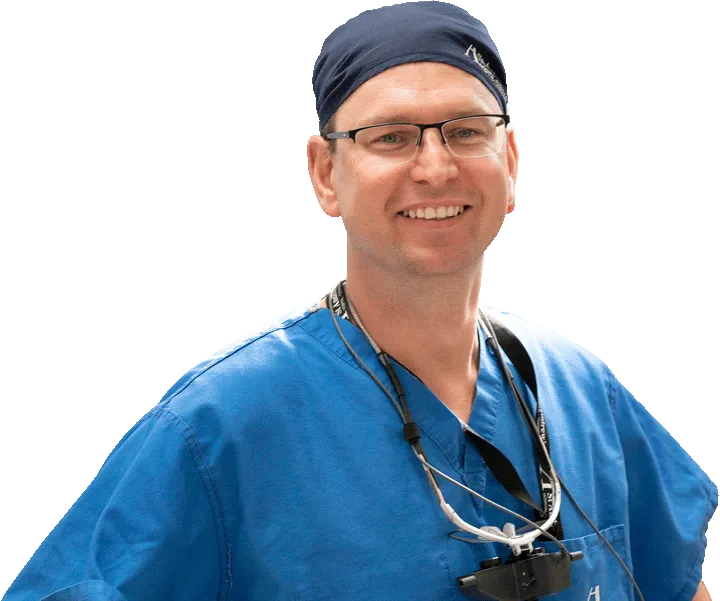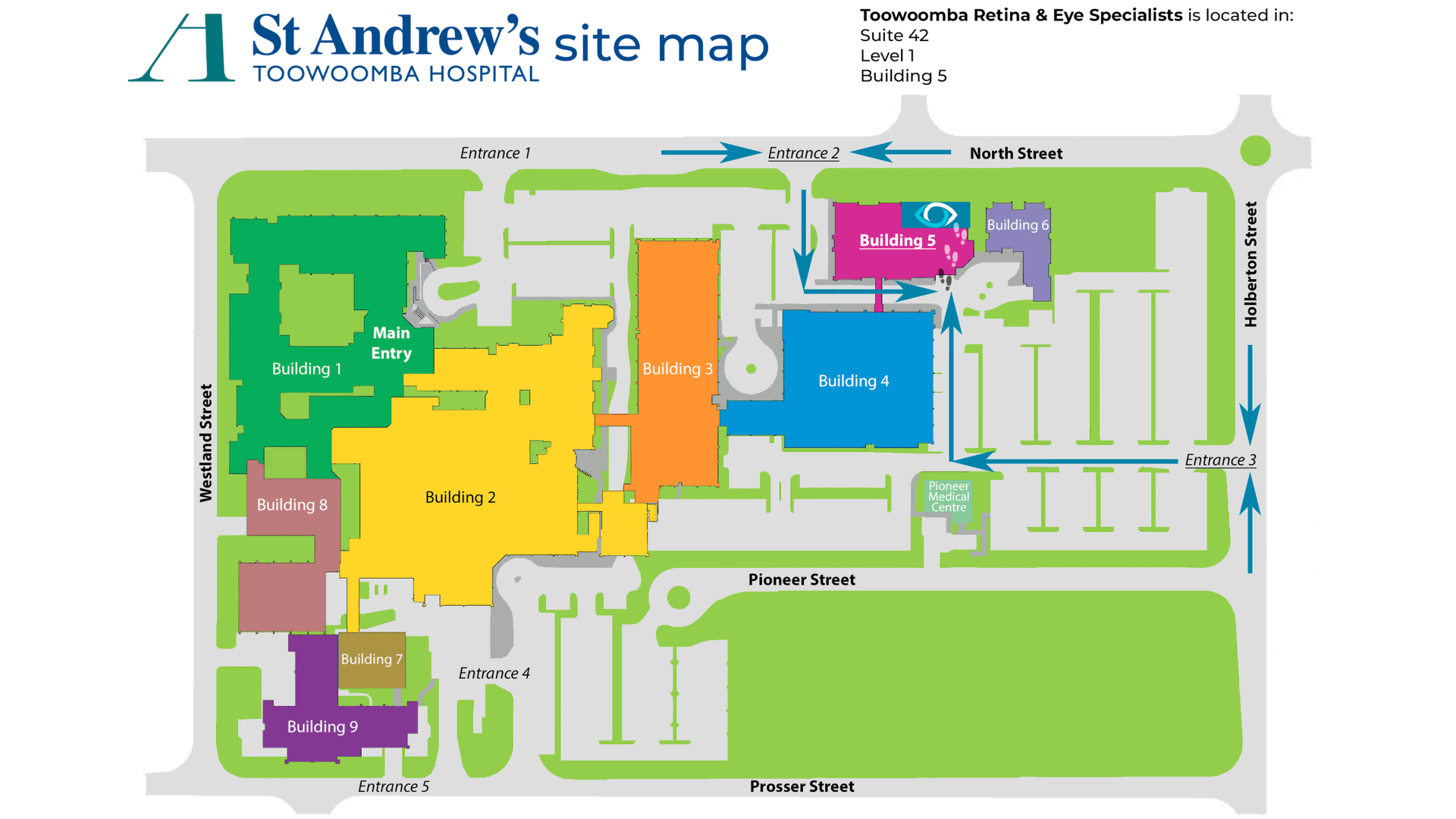About Dr Andrew McAllister
Ophthalmologist and Retinal Specialist
BVSc(Hons) MBBS(Hons) MMed(OphthSc)
GradDip(Cataract Refractive Surgery) FRANZCO
Dr Andrew McAllister is an eye surgeon who has additional sub-speciality training in the surgical and medical treatment of disorders affecting the retina, vitreous, and in cataract surgery.
Andrew was born in Toowoomba and grew up in the South Burnett. He worked as a veterinarian in the Kimberley for 2 years before completing his medical degree at the University of Queensland. He went on to train as a general ophthalmologist, before undertaking subspecialty fellowships in vitreoretinal surgery and medical retina at Hamilton NZ, Townsville, and the Royal Victorian Eye and Ear Hospital in Melbourne.
Dr. McAllister's additional training was in the surgical and medical management of retinal detachments, macular holes, epiretinal membranes, age related macular degeneration, retinal vascular disorders, diabetic retinopathy, tumours of the eye, uveitis, ocular trauma, and complex cataract surgery.
He has a Master of Medicine, has published in international journals, authored textbook chapters, has a graduate diploma in cataract and refractive surgery, and teaches University of Queensland medical students
Andrew is committed to providing specialist eye services to regional and rural patients.
Andrew is dedicated to providing you with the very best care and treatment in your home region, so you won't have to travel to treat your sight or remedy an urgent problem.

 Important Patient Information
Important Patient Information
 Sign the Petition
Sign the Petition
